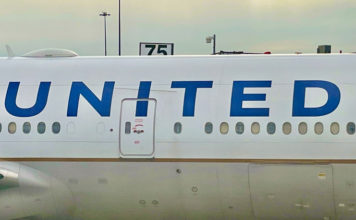
TravelingForMiles.com may receive commission from card issuers. Some or all of the card offers that appear on TravelingForMiles.com are from advertisers and may impact how and where card products appear on the site. TravelingForMiles.com does not include all card companies or all available card offers.
Some links to products and travel providers on this website will earn Traveling For Miles a commission that helps contribute to the running of the site. Traveling For Miles has partnered with CardRatings for our coverage of credit card products. Traveling For Miles and CardRatings may receive a commission from card issuers. Opinions, reviews, analyses & recommendations are the author’s alone and have not been reviewed, endorsed, or approved by any of these entities. For more details please see the disclosures found at the bottom of every page.
Israel may currently lead the world in terms of the percentage of the population that have been given their first dose of a coronavirus vaccine but the country has also seen a significant surge in new coronavirus cases in recent weeks and, with fears growing that a new and potentially more deadly variant of the virus is being imported into the country, Israel’s government took action.
Since Monday, 25 January 2021, Tel Aviv’s Ben Gurion airport has been closed to most incoming and outgoing passenger flights after reports emerged that between 26 December and 21 January only 33 percent of returning travelers followed Israel’s quarantine rules.
At first, the ban was only meant to run through to the end of January, but it was quickly extended through 20 February when it became clearer that Israel was fighting a resurgence of the coronavirus. Yesterday, with just 48 hours to go before the travel ban was due to be lifted, the Israeli government extended the ban once again. This time, through 6 March.
The Ban
Incoming cargo flights will remain unaffected but all other flights continue to be limited to a few exceptions:
- People traveling for:
- Medical treatment
- Essential work
- Legal proceedings
- A funeral of a relative
- People traveling from one residence to another
- Israeli citizens who left Israel before the original ban came into force on 25 January 2021.
Importantly, not only do people wishing to enter Israel during the travel ban have to meet the criteria of one (or more) of the exceptions but they also have to have clearance from the “Exceptions Committee” (link to the relevant Israeli Government page) and they have to show proof of a negative PCR test taken no more than 72 hours before departure.
Also, through 1 March 20201 (as things stand), all inbound passengers from all destinations must go into isolation a “state-designated isolation motel” rather than at home. The duration of isolation in a state-designated isolation motel is 14 days or 10 days if the person in isolation takes two coronavirus tests and both test results are negative.
Thoughts
The ban was originally put in place as fears grew that travelers were importing new strains of coronavirus into Israel that some believe may be resistant to the various vaccines that have been developed and, even though it should be stressed that we don’t yet appear to have any solid scientific evidence to support the theory that the current vaccines are less effective against one or more of the new coronavirus variants, the Israeli government is not taking any chances.
Israel currently leads the world in the race to innoculate its population but some of the new variants are unquestionably more contagious and, by extension, are potentially capable of causing more deaths than the original variant. So, even if the vaccines remain effective against the new variants, Israel’s caution appears to be warranted.
Bottom Line
Israel’s Ben Gurion airport will now remain effectively closed until 6 March 2021 (at the earliest) as the country continues to work to prevent any further inflow of new coronavirus strains from abroad. Some exceptions to the travel ban exist, but with a negative PCR test required before travel, a lot of hoops to jump through to get permission to travel, and at least 10 days of government-supervised quarantine waiting upon arrival, I suspect that there are only a handful of people considering traveling to Israel right now.








![The ideal 4 card American Express Membership Rewards team [Updated] a glass door with a picture of a man](https://travelingformiles.com/wp-content/uploads/2021/06/Amex-Centurion-Lounge-SFO-featured-741-356x220.jpg)








